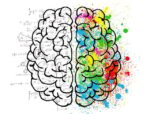This book breaks down the complex tone of Globalization to its bear minimum understanding. Thomas Friedman is decisive about the benefiting effects of Globalization and speaks of harshness too, in no meager terms. The book offers tremendous insights to not only globally connected markets but also dwells into the role of the countries in devising economic strategies that is in sync with the globalization syndrome. Friedman treats countries as an extended versions of a corporate and constructs analogies of the corporate structure vis-à-vis countries across the world. The 4 compelling insights that I received from this national best-selling book are depicted further in this post.
1. Cold War System and Globalization
Friedman begins the book with the global system shaped by the Cold war regime. He states that the cold war had its own rules. In foreign affairs neither super powers would encroach on the other’s sphere of influence. In economics, the less developed countries would focus on nurturing their own national industries and developed countries would concentrate on export led growth. The clash between capitalism and communism was very evident during the cold war. The Berlin wall depicted the iron curtain which froze the movement of the goods and human capital. The cold war’s defining technologies were the nuclear weapons and equally defining anxiety in nuclear annihilation. Thus, Friedman describes that the cold war influenced the domestic politics with limited extension into commerce and foreign relations.

If cold war system can be described in one word as “Division”, Globalization can be defined on similar lines as “Integration”. Friedman says that if Cold war system reached for the hotline, Globalization availed the Web. Globalization as per Friedman, is the inexorable integration of markets, nation-states and technologies that enables individuals, corporations and nation states to reach around the world faster, farther, deeper and cheaper than ever before. This process of globalization also produces a strong backlash from those brutalized or left behind in this new system. Globalization calls on the Moore’s law, which states that the computing power of the silicon chips will double every two years, while their prices will halve. In cold war system, the tendency was to ask “Whose side are you on?” but with Globalization the question is re-framed to “How well are you connected?” Friedman declares that most willing to let capitalism quickly destroy inefficient companies, so that money can be freed up and directed to more innovative ones, will thrive in the era of globalization.
2. Golden Straitjacket
When a country recognizes the rules of Globalization, it also appreciates its benefits. This appreciation leads such countries to abide by these laid down rules and thus feel the need to put on the political-economic garment which Friedman calls – Golden Straitjacket. Ms. Margaret Thatcher, the then British prime minister was the first national leader to stitch such a Golden straitjacket from the economic viewpoint. This was further reinforced by Ronald Reagan, the then President of United States of America. The Thatcherite-Reaganite revolutions came about because popular majorities in these two major western economies concluded that the old government economic approaches simply were not providing sufficient levels of growth. They stripped huge chunks of economic decision-making power from the state, from the advocates of the great society and from the traditional Keynesian economics, and handed them over to the free markets. The Golden Straitjacket was a three pronged phenomenon. It involved the “Democratization of Technology, Finance and Information”.

The democratization of technology is the result of the several innovations that came together in the 1980s involving computerization, telecommunications, miniaturization, compression technology and digitization. The cost of the storage has reduced considerably making the computing power stronger and more accessible. The innovations in Telecommunications have steadily brought down the costs of phone calls and data transfers, while constantly increasing the speed. The democratization of finance actually began in the late 1960s with the emergence of the “commercial paper” market. These were bonds that corporations issued directly to the public in order to raise capital. The creation of this corporate bond market introduced some pluralism into the world of finance and took away the monopoly of the banks. The internet is the pinnacle of democratization of information: no one owns the internet, it is totally decentralized, no one can turn it off, it potentially reaches into every home in the world and many of its key advances were done by collaborations among individuals.
3. The Electronic Herd
In September 1997, Malaysia’s Prime Minister, Dr. Mahathir Mohamad, used the World Bank meeting in Hong Kong to denounce the evils of globalization, after Malaysia’s stocks and currency were ravaged by global and local investors. He accused the “Great Powers” and financiers such as George Soros of forcing Asians to open their domestic markets to global speculators and manipulating their currencies to destroy them as competitors. He compared global capital markets to a “jungle of ferocious beasts”. Friedman uses this anecdote to reaffirm that globalization isn’t a choice but a reality. There is just one global market and the growth of the people will depend on the speed at which they want to grow by tapping into the global stock and bond market. It is reasonable to believe that someone is in charge and responsible but global marketplace is an Electronic herd of often anonymous stock, bond and currency traders and multinational investors, connected by screens and networks. The electronic herd plays by the rules of the golden straitjacket. It cuts nobody any slack and does not recognize anyone’s unique circumstances.

For years Malaysia seemed to be living by those rules and it attracted massive direct and portfolio investments which had enables the country to raise its per-capita income from 350 dollars to 5,000 dollars in a couple of decades. But when Malaysia started to break the rules by over borrowing and then over building, the herd stampeded and left a roadkill.
4. Countries and Companies share attributes
Friedman wonders whether the attributes of countries and companies were beginning to converge. When the country is linked to the global economy, it’s like taking the country public – like turning the country into a public company with shareholders all over the world – this alone is giving the country a corporate feel. Citizens will behave more like shareholders, leaders more like management and foreign policy analysts more like credit-rating agencies. The more widespread the internet becomes in the lives of the citizens, the more pressure will be imposed on the governments and legal systems to operate at new speed. Countries are under pressure to behave more like companies because in the globalization system countries, more than ever, can choose prosperity – depending on the policies they adopt – and their citizens will start to catch on to that and demand better management accordingly. Friedman has designed extensive checklist from looking at the best global companies and countries to help countries choose prosperity just like companies.

This is the core message that I received from the book The Lexus and the Olive Tree. It is a great read and I strongly recommend you to read it.
Thanks for reading.













I’m undoubtedly enjoying your blog and look forward to new updates.
Thanks Dan. Appreciate your comments.
Very very good job and thanks for sharing such a blog.
Best regards,
Thomassen Henneberg
Many Thanks Thomassen.